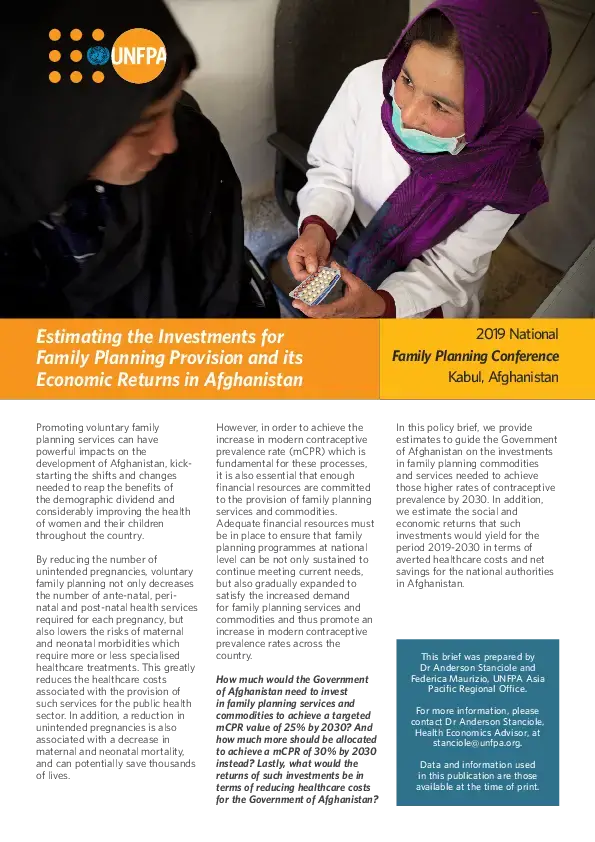Promoting voluntary family planning services can have powerful impacts on the development of Afghanistan, kickstarting the shifts and changes needed to reap the benefits of the demographic dividend and considerably improving the health of women and their children
throughout the country. By reducing the number of unintended pregnancies, voluntary family planning not only decreases the number of health services required for each pregnancy but also lowers the risks of maternal and neonatal morbidities. This greatly reduces the healthcare costs associated with the provision of such services for the public health sector. In this policy brief, we provide estimates to guide the Government of Afghanistan on the investments in family planning commodities and services needed to achieve those higher rates of contraceptive prevalence by 2030.
What we do
Afghanistan Family Planning Cost Benefit Analysis

Publisher
Number of pages
4
Author
UNFPA
Publication
Afghanistan Family Planning Cost Benefit Analysis
Publication date
06 February 2019
Latest
Publications
03 September 2024




